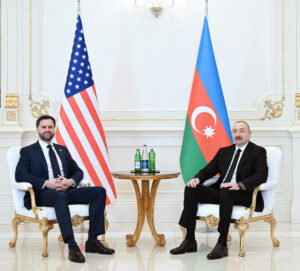Need for Dialogue Among Civilizations in the Face of Rising Challenges

In an era today defined by increasing uncertainty, polarization, and geopolitical tensions, the need for meaningful dialogue among civilizations is more urgent. We continue to face unprecedented challenges ranging from war and ideological conflict to nontraditional security issues as well, which threaten global peace or stability. Against this backdrop, the call for enhanced intercultural understanding, tolerance, and collaboration has become a significant need. At the heart of this vision lies China’s Global Civilization Initiative (GCI), which appears to be a very timely and transformative response aimed at turning civilizational dialogue into a global norm.
Today’s world is witnessing a period of profound turbulence, with the leading or initiation of multiple conflicts in multiple regions; also, the persistence of the Cold War mentality, the heightening of divisive ideologies like civilizational supremacy, and the fear-mongering around the so-called clash of civilizations are shaping public discourse. Such ongoing trends are not only regressive but also dangerous in a world that is now much more interconnected after 1945 due to globalization.
People are increasingly anxious about their future and worried about whether the next generation will inherit a world driven by division or conflicts. So it is better to foster a spirit of dialogue among civilizations, which right now is the only transformative path forward. China has been actively working to reshape global discourse through its belief in diversity as a defining or significant feature of human civilization, turning confrontation into cooperation and replacing exclusion with inclusiveness.
International Day for Dialogue Among Civilizations
For example, as June 10 marks the International Day for Dialogue Among Civilizations, which was endorsed by the United Nations General Assembly (UNGA) and was proposed by China and co-sponsored by over 80 countries, it serves as a significant chance as a powerful symbol of the international community’s shared commitment to promoting mutual respect and peaceful coexistence. The dialogue among civilizations is not merely aspirational but necessary to achieve global peace, shared progress, and the well-being of all humankind. Significance of civilizational dialogue as a “bond of peace, driver for development, and bridge of friendship Dialogue among civilizations is a practical strategy for addressing real-world problems. To make civilizational dialogue a global norm, it must go beyond symbolism and be embedded in global institutions and national policies.
The International Day for Dialogue Among Civilizations can be extended through extensive measures such as educational initiatives, academic symposiums, and public campaigns that celebrate civilizational diversity by the United Nations (UN) and its agencies. At the policy level, countries and international organizations must support laws and programs that promote cultural cooperation and implement programs that facilitate people-to-people contacts, scholarships, and cultural exchange events that build long-term understanding.
The Global Civilization Initiative (GCI), which was launched in 2023, makes the cornerstone of China’s efforts to elevate civilizational dialogue on the global agenda, similar to the common belief of peace in other major initiatives such as the Global Development Initiative (GDI) and the Global Security Initiative (GSI). All these initiatives are aimed at fostering an inclusive international environment rooted in mutual learning, peaceful coexistence, promoted people-to-people exchanges, multilateral cooperation, and helping build institutional mechanisms.
Reviving the Spirit of the Silk Road
China’s vision is drawing inspiration deeply from its civilizational history, including the legacy of the ancient Silk Road route that had not only facilitated trade but also encouraged cultural exchanges between East and West. That same spirit of friendly cooperation now drives modern initiatives like the Belt and Road Initiative, which connects countries across continents and fosters mutual prosperity. BRI partners are engaging in not only economic cooperation but also cultural and educational exchange, laying a robust foundation for civilizational dialogue.
China demonstrates how historical wisdom can inform contemporary action through modernizing this ancient spirit of exchange. The Global Civilization Initiative emerges as a timely and visionary response to humanity’s collective call for peace, progress, and unity and proves that different civilizations, regardless of language, religion, or historical background, can coexist and thrive through dialogue and mutual respect.
And also emphasizing equality among civilizations, every society has unique wisdom to contribute to the vision of a community with a shared future for mankind. While dialogue among civilizations may not resolve every global issue immediately, it provides the necessary environment for peaceful problem-solving and opens avenues where they were previously shut. Despite these encouraging efforts, several obstacles continue to hinder the normalization of dialogue among civilizations, such as persistent notions of cultural superiority and the clash of civilizations narrative, as well as systemic issues like climate injustice, growing socioeconomic inequality, and rising xenophobia, which act as barriers to civilizational advancement.
Civilizational dialogue is the only pathway to reduce hatred and conflict in today’s deeply divided world. China is helping the whole world in telling a timeless truth that humanity, in all its diversity, is stronger when united by shared values and a common vision.


